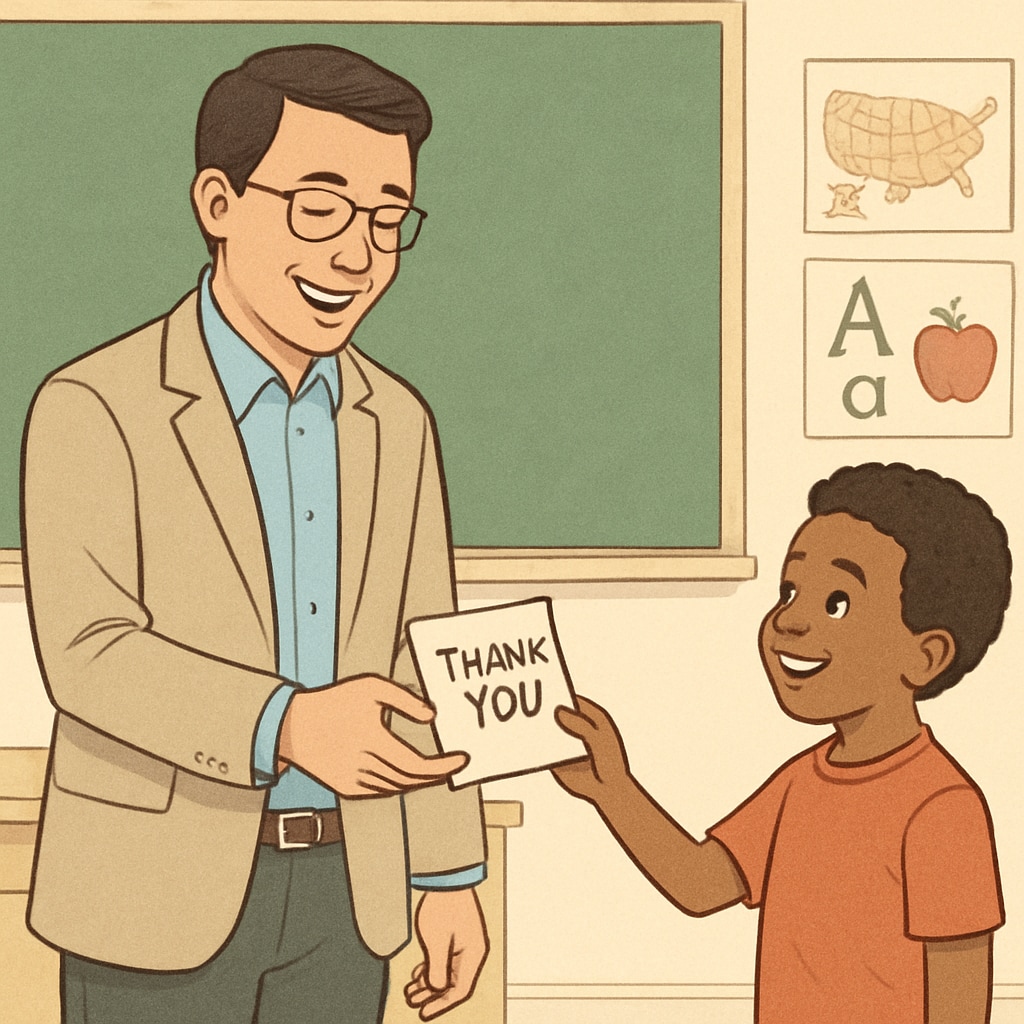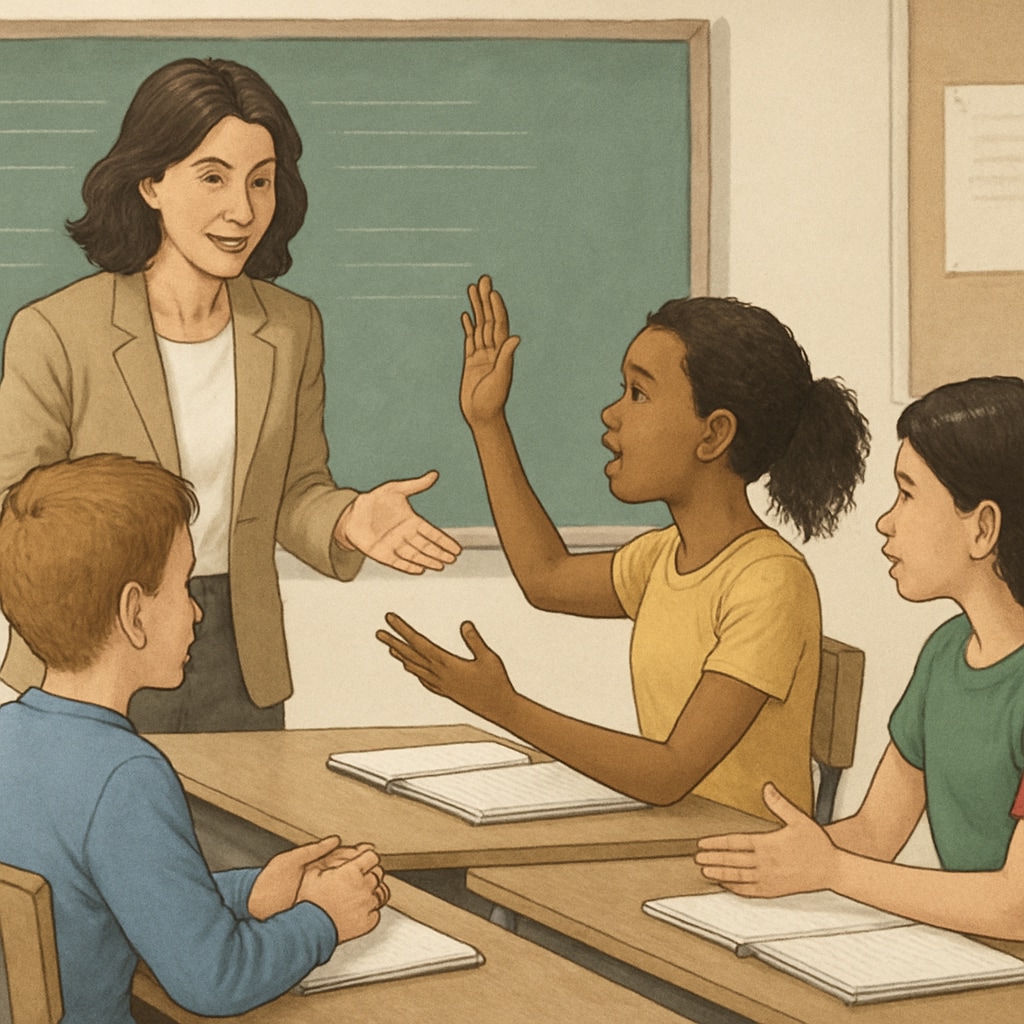The phrase “student gratitude, teacher influence, respect for perspectives” might seem simple, but it carries a profound meaning. A heartfelt “thank you” from a student not only warms a teacher’s heart but also serves as a reflection of the deepest values of education. When teachers respect their students’ voices and genuinely listen, the effects can be transformative. This article delves into the significance of student gratitude, how it impacts teacher-student relationships, and how it aligns with the essence of education.
The Power of Student Gratitude in Education
Student gratitude is more than just polite words; it is a mirror of their learning journey. When students express thanks, they acknowledge the value of the lessons imparted, the effort made by the teacher, and the personal growth they have achieved. This act has a profound psychological impact on both parties. For the student, it fosters a sense of self-awareness and emotional intelligence. For the teacher, it reinforces the meaning and purpose of their work.
Research has shown that gratitude strengthens relationships and promotes positive mental health. For example, a study published by Britannica highlights that gratitude increases interpersonal bonds, making it an essential element in education. When teachers feel appreciated, it motivates them to further nurture and inspire their students.

Teacher Influence: Creating Lasting Impressions
Teachers have a unique power to influence their students’ lives. A well-timed word of encouragement or a supportive gesture can leave an indelible mark. When students express gratitude, they often refer to specific moments when a teacher’s guidance made a difference. These acknowledgments highlight the role of teachers in shaping not just academic skills but also life values.
For example, a teacher who respects and values students’ opinions fosters a classroom environment where students feel heard and empowered. This respect nurtures intrinsic motivation and helps students develop a strong sense of self-worth. As a result, the teacher-student relationship becomes a collaborative journey of growth, rather than a one-sided transfer of knowledge.
In addition, expressing gratitude allows students to reflect on their educational experiences, promoting a deeper understanding of their learning process. This aligns with the core purpose of education: to cultivate critical thinking, empathy, and self-awareness.

Respecting Students’ Perspectives: The Core of Education
At the heart of every successful teacher-student relationship lies respect. When teachers actively listen to their students’ perspectives, they convey that their thoughts and opinions matter. This validation is crucial for fostering a positive learning environment. Respect creates a foundation of trust, allowing students to share their ideas without fear of judgment.
Moreover, respecting students’ voices aligns with modern educational philosophies. For instance, constructivist approaches emphasize the importance of students being active participants in their learning. By valuing their input, teachers empower students to take ownership of their educational journey, thereby enhancing engagement and motivation.
On a broader scale, this mutual respect prepares students for real-world challenges. When they feel valued in the classroom, they are more likely to carry that confidence into other areas of their lives, fostering leadership and collaboration skills.
The Lasting Echo of Gratitude
Ultimately, a student’s heartfelt “thank you” is a testament to the transformative power of education. It signifies that the teacher’s efforts have not gone unnoticed and that the lessons taught have resonated deeply. This gratitude serves as a reminder of the true purpose of education: to inspire, to guide, and to nurture.
In the words of philosopher John Dewey, “Education is not preparation for life; education is life itself.” When students express genuine gratitude, they affirm this belief, highlighting how education shapes their values, attitudes, and aspirations.
For educators, these moments of appreciation are not just gratifying—they are a call to continue making a difference. By respecting students’ perspectives and fostering meaningful connections, teachers can leave a lasting legacy that extends far beyond the classroom.
In conclusion, the profound impact of student gratitude on education cannot be overstated. It reflects the essence of teaching and learning, emphasizing the importance of mutual respect, empathy, and growth. For teachers and students alike, these expressions of appreciation are the deepest echoes of a truly transformative educational experience.
Readability guidance: This article maintains a balance of short paragraphs and lists, ensuring accessibility and engagement. It includes numerous transition words to guide the reader, while being mindful of sentence and paragraph length for readability.


